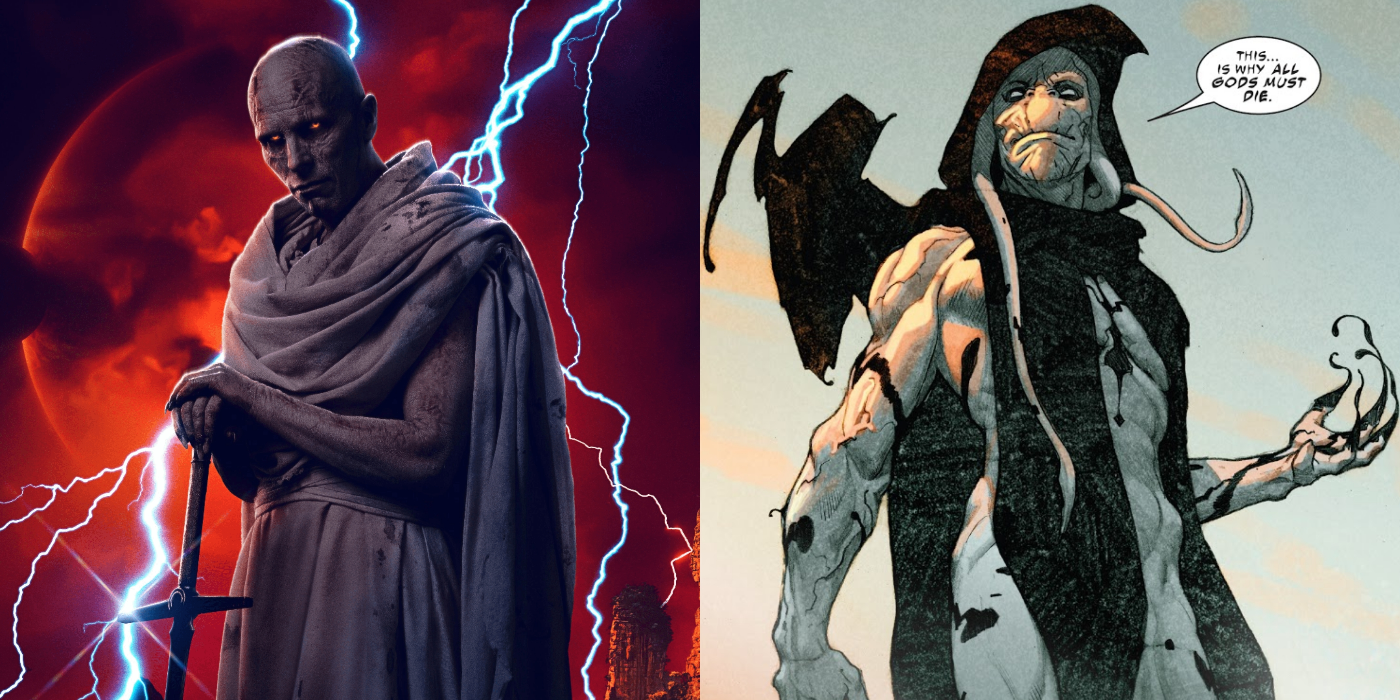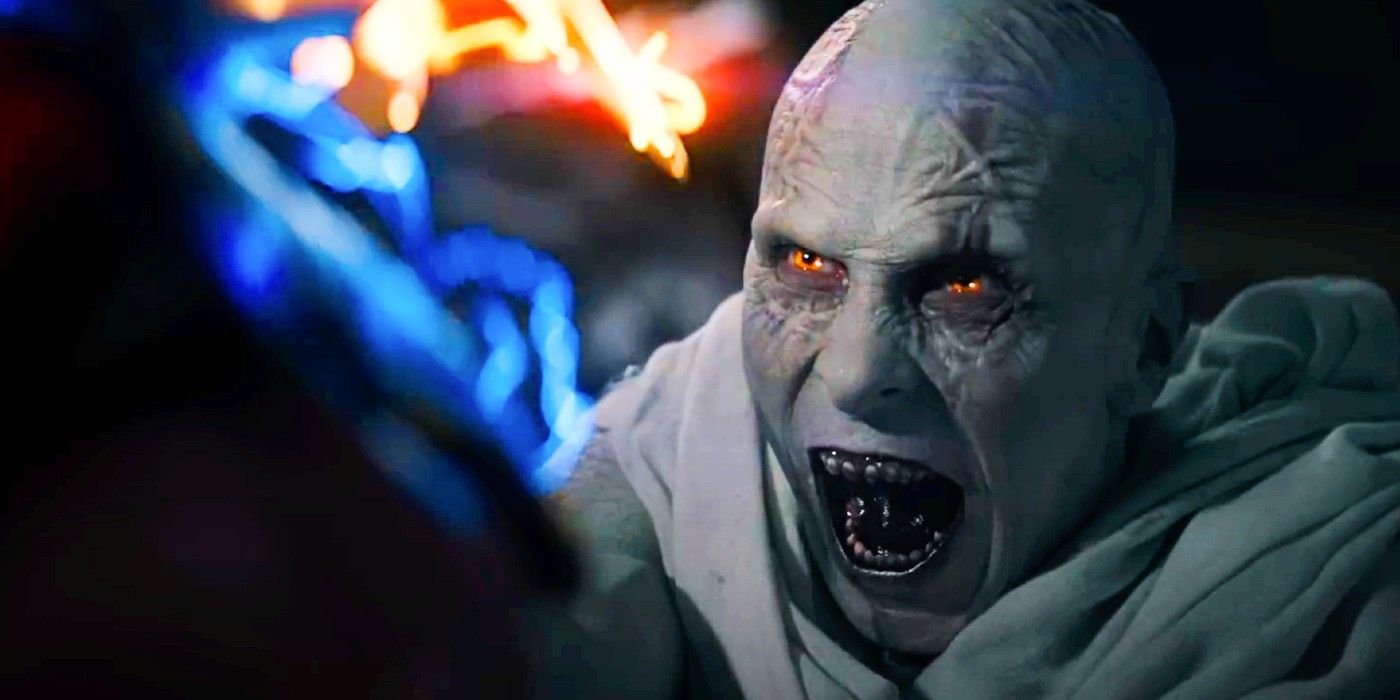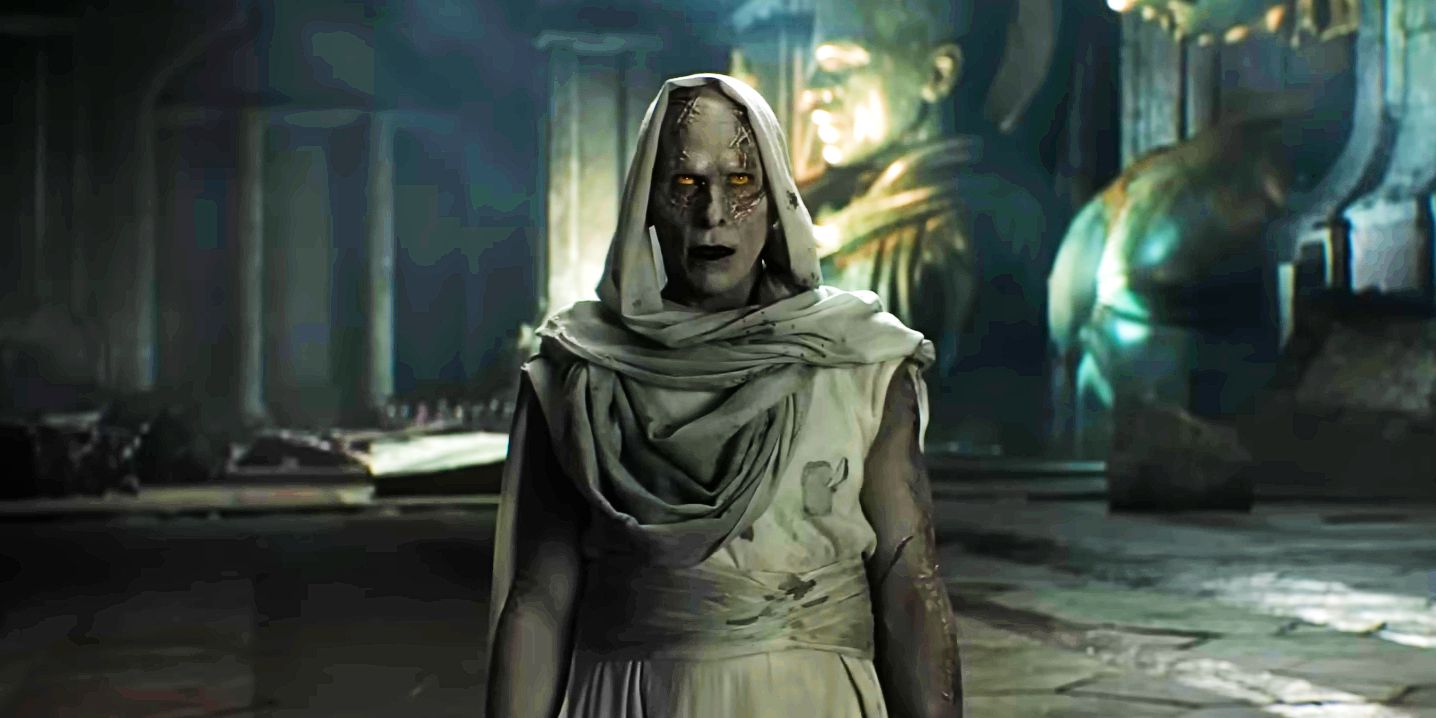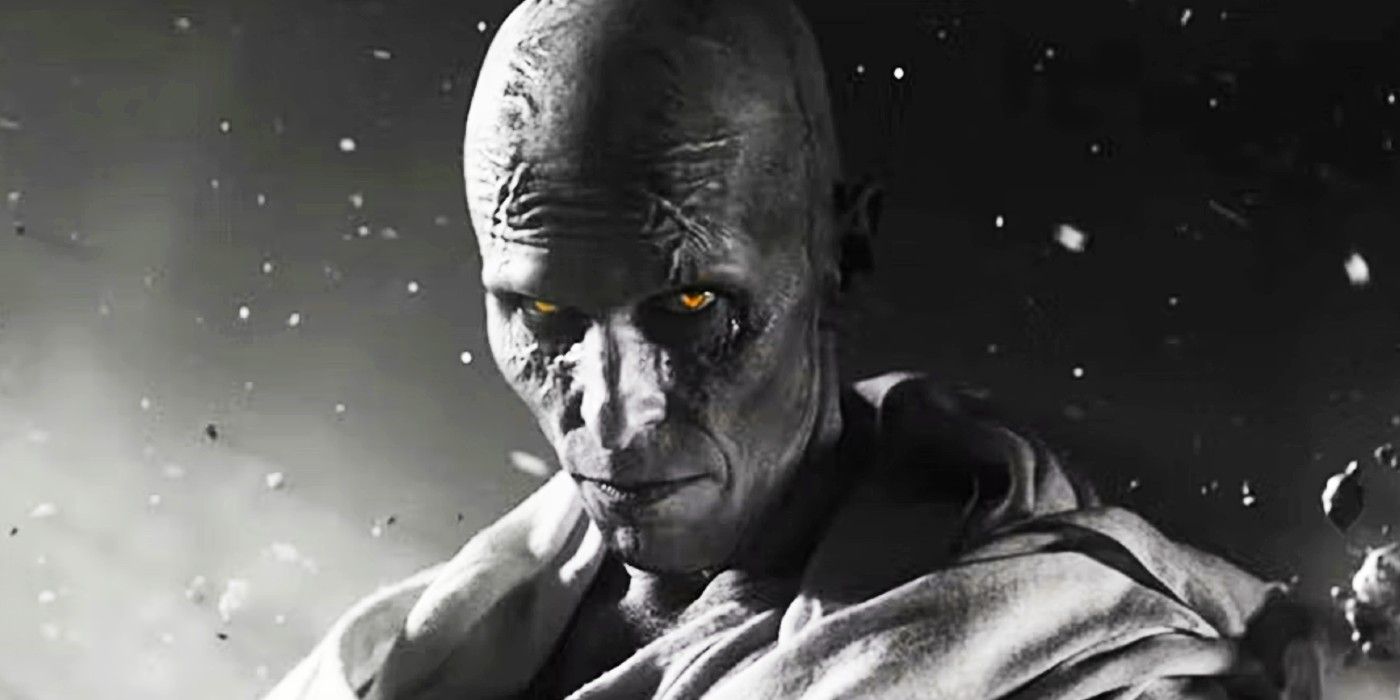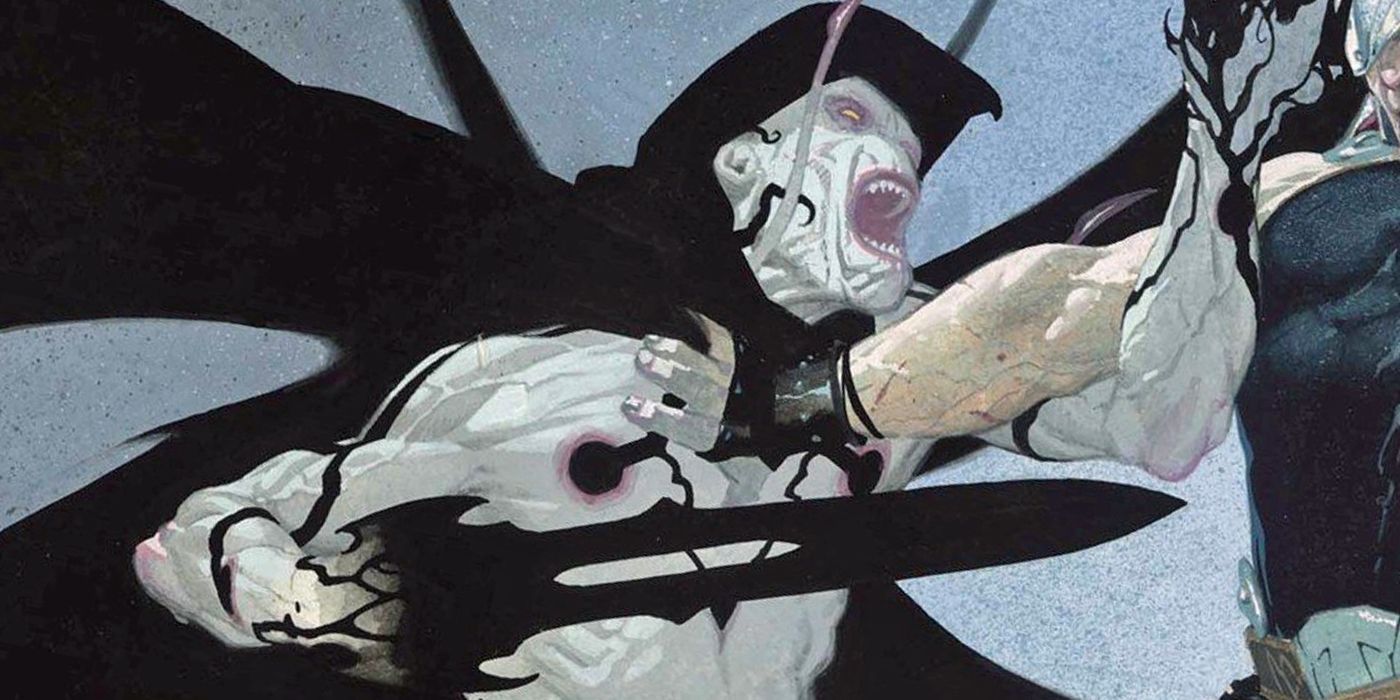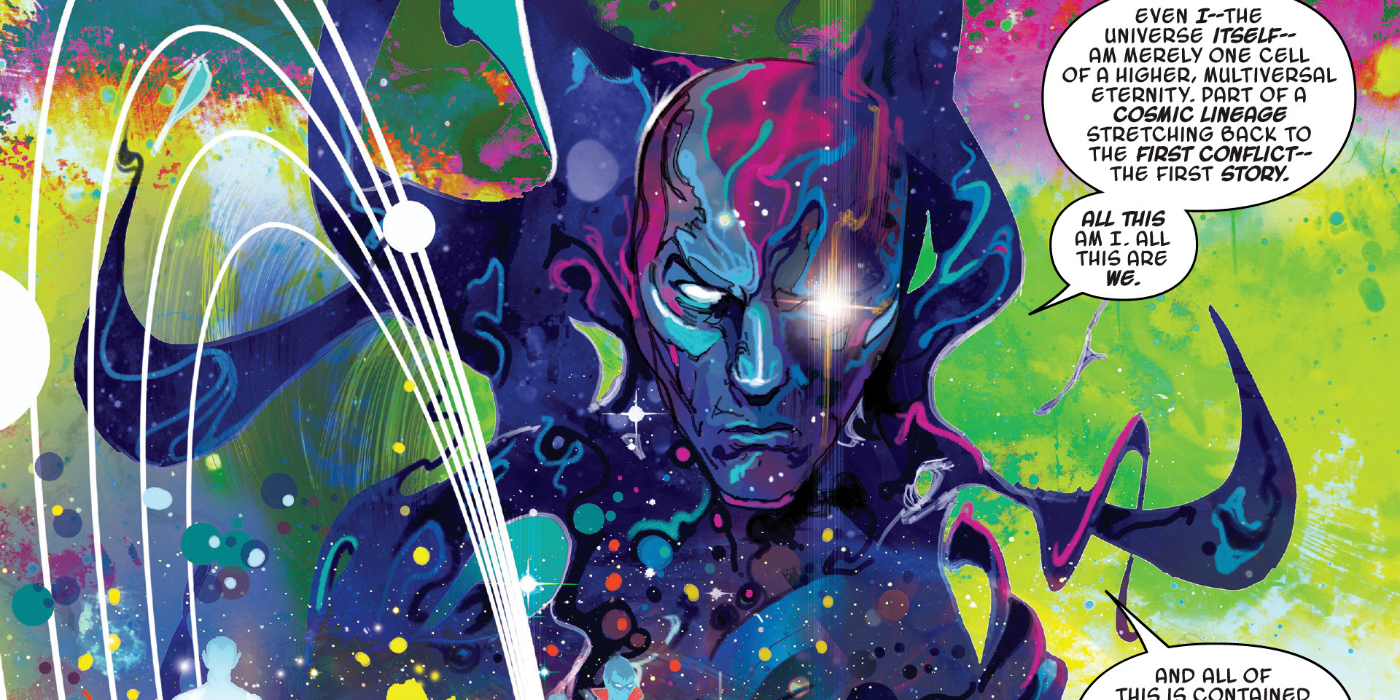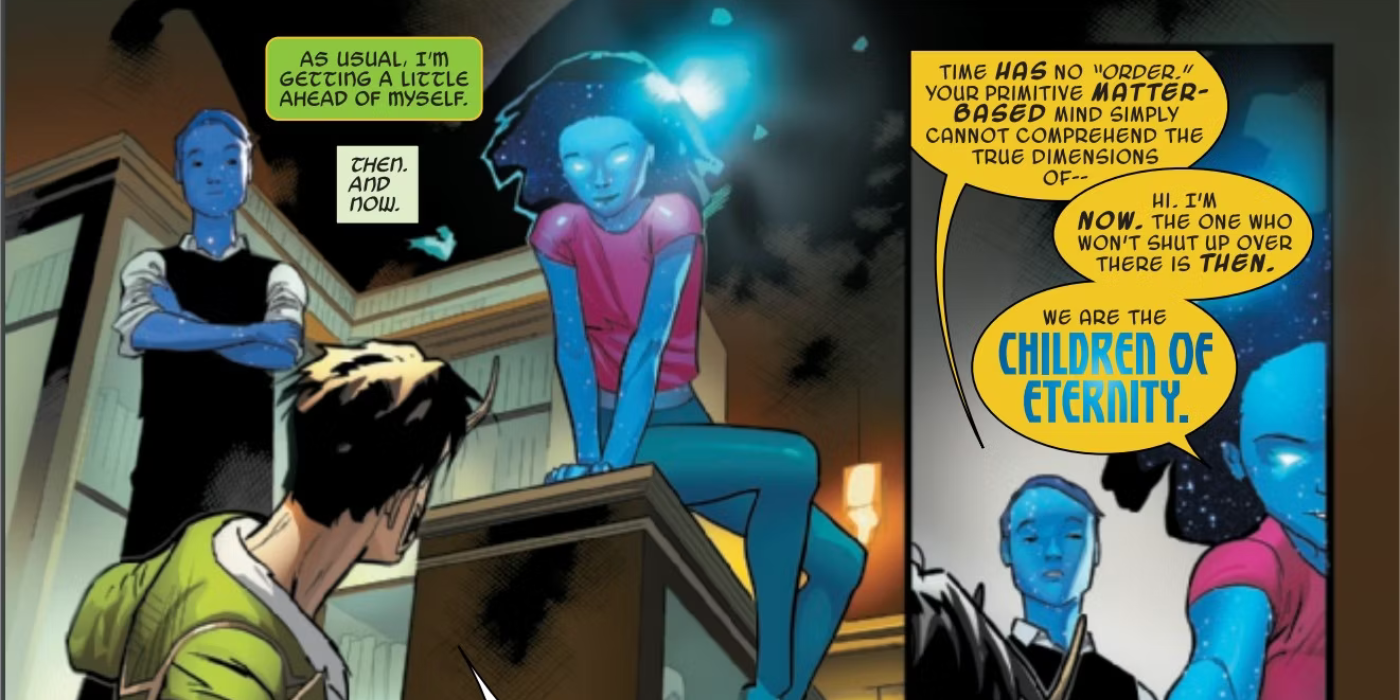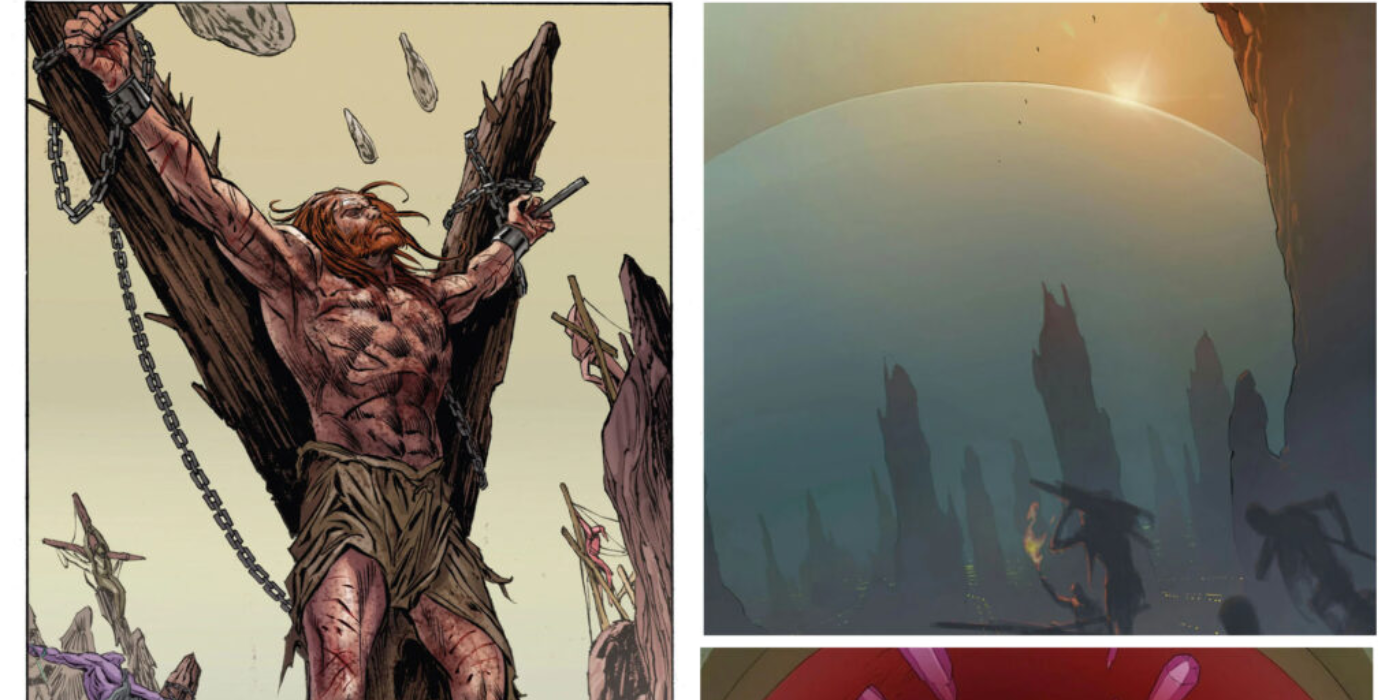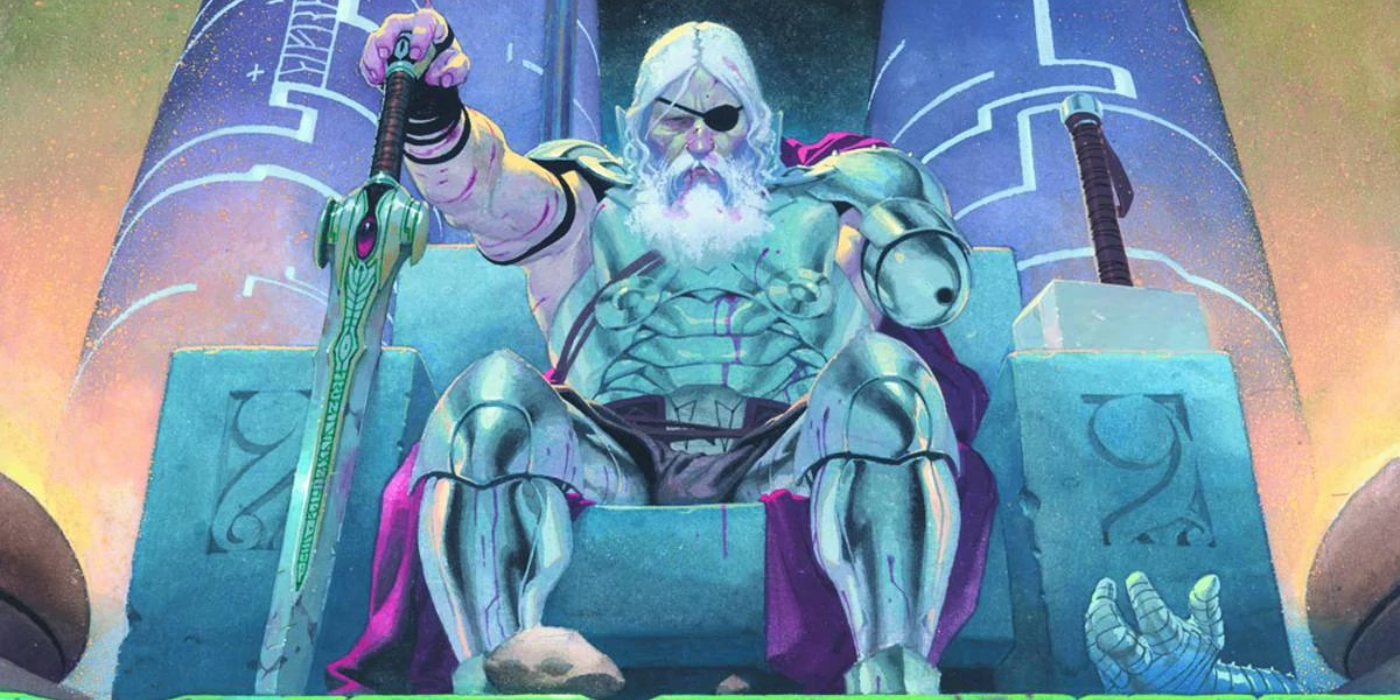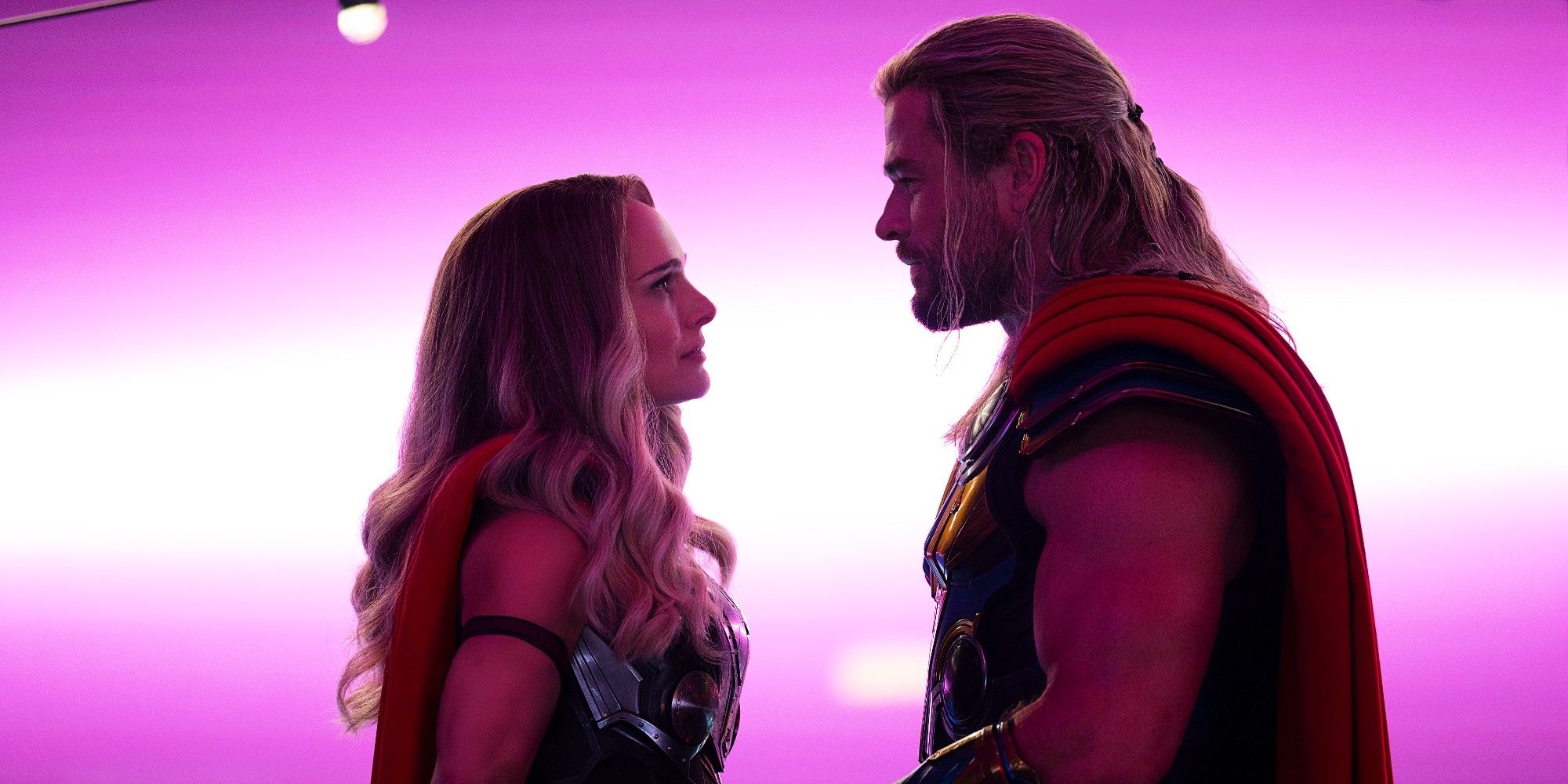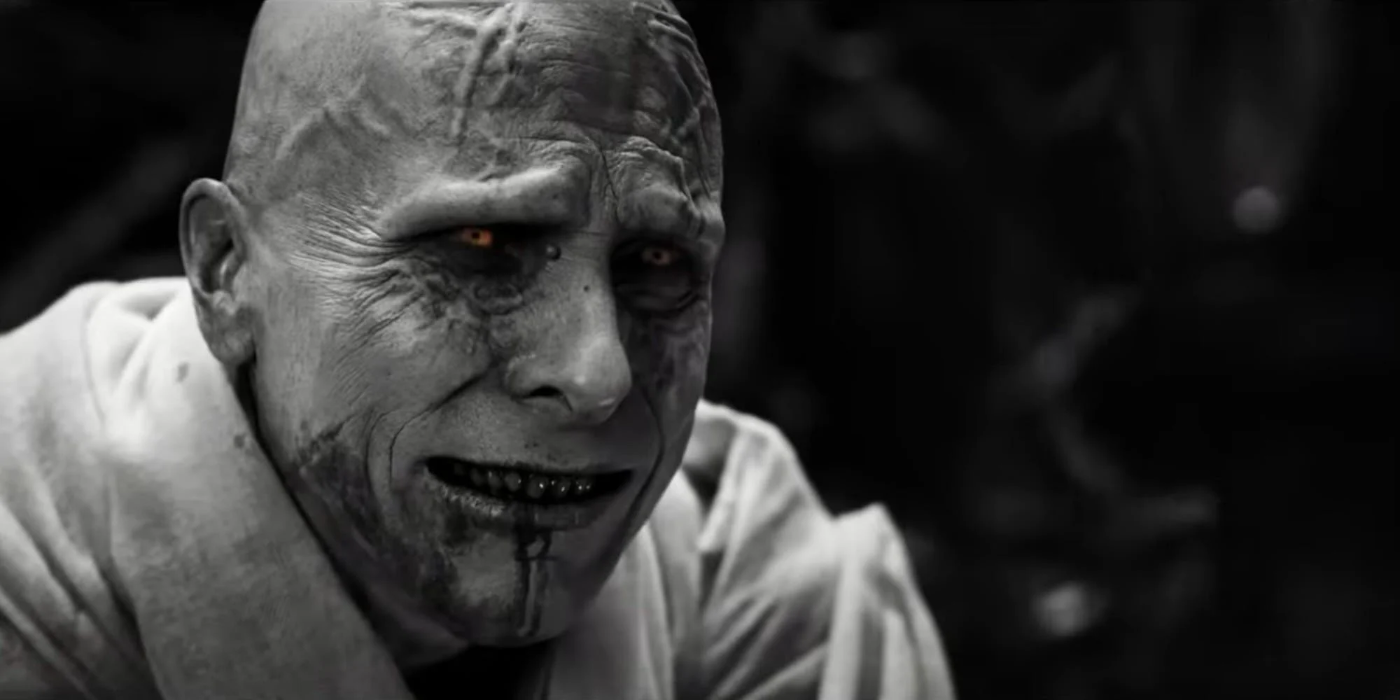Thor: Love and Thunder have been met with some polarizing reception from audiences and critics alike. For starters, the significant differences from the source material in MCU's incarnation of the characters has caused the audience to have mixed feelings about the film adaptation. And one such character would be Gorr, the God Butcher.
It should always be a given that the move to film means the character should be treated as their own independent individual, and these differences are not inherently criticisms of the MCU character's portrayal. It's also important for the film's writing to stay true to the character's core. Only time will tell if people feel that way about MCU's Gorr.
Significantly Weaker
While the travel from comics to MCU has always been a bit of a nerf for characters, it's much more noticeable with Gorr. This is a man who not only slays gods, he butchers them. His spite for the gods fueled the Necrosword and made him capable of great terror.
In the film, that part is not as fleshed out as it could have been. The butchering of minor gods is not given a lot of screentime. Additionally, Gorr's fighting style is sickly, and he is easily tossed around by Asgardians. While powerful enough to stand against Thor, he is far from the villain who subjugated him in the comics.
Far Younger
This version of Gorr has no definite age, but he is most certainly not as old as his comic counterpart. Gorr in the comics is thousands of years old and has seen the nigh-immortal Thor's hair turn gray. In a way, this does explain MCU Gorr's lack of combat experience.
The Necrosword, much like in the comics, keeps him alive through some devastating attacks. It took centuries for him to master all of its nuances. MCU's Gorr seemingly hasn't had the time needed to be the man who could easily trounce the gods.
Had a Daughter, not a Son
In the MCU, Gorr's child is not a son, but a daughter. Truthfully, that's the extent of the change's significance. Although their children are different in gender, both the MCU Gorr and Comics Gorr have one positive trait, and that is that they love their children deeply.
Although, where that differs is how much deeper MCU Gorr's love fuels his actions. In the comics, the love for his son was only barely on par with Gorr's burning hatred for the gods. In the MCU, Thor manages to talk down Gorr from his genocidal ways by appealing to his love for his daughter. Quite controversially for comic fans, this worked.
Never Travelled through Time
A major plot element of Gorr's arc in the comics was his use of time travel. He found the gods of time and enslaved them so that he could use their powers for his own schemes. It is also through time travel that he manages to kidnap Young Thor and enslave him to build the God-Bomb.
In the MCU, this plot element is completely absent. The importance of the time travel plot in the comics was to establish just how much spite Gorr had for Thor himself. It gave his actions a petty edge that further cements his hatred. In the MCU, Gorr treats Thor more like an inconvenience than an adversary.
Wants Eternity, not a God-Bomb
Comic Gorr's master plan to kill all the gods was creating a hyperdimensional "God-Bomb". This bomb would explode across all of time and space, eradicating all gods from existence. The bomb was created by a trickster god of bombs, enhanced with time magic from the time gods, then powered up immensely by the Necrosword.
Quite an over-the-top plan, in comparison to MCU Gorr's admittedly more elegant (and convenient) goal. Here, Gorr is looking to steal Stormbreaker, as it's the only artifact that generates the Bifrost. The Bifrost is the key to meeting Eternity, a being far above the gods who grant any who meet them a single wish. Three guesses what the God-Butcher would wish for.
Created a Child using Eternity, not the Necrosword
One of the few sentimentalities that Gorr allows himself in the comics is a "family." With the Necrosword, he manifested both a child and a wife to accompany him on his goal. Interestingly, despite being extensions of "himself", the constructs have their own feelings and thoughts.
In the film, as Gorr lays dying, he changes his wish of god genocide to wishing for his daughter back to life. Fascinatingly, the child born from this seems to be made of Eternity itself. Time will tell if this child will grow into a formidable celestial being.
Never Enslaved Most of the Gods
In the comics, Gorr is seen punishing a lean and muscular slave. Much to readers' surprise, it's revealed that the slave is Volstagg, the famously fat companion of Thor. Surprise turns to shock as the comic zooms out, and there is a veritable horde of slaves. Without mincing words, Gorr says all of these slaves are gods.
MCU's Gorr never reached that level. Like in the comics, he did murder a lot of gods off-screen. Although seeing as his plan for Eternity doesn't really need a horde of godslaves, it's likely he didn't bother with that part. A film does tend to favor smoother plans.
Never Met Allfather Thor or Young Thor
Touched upon in the time travel point, but needs further elaboration. In the comics, Gorr is present at all three significant stages of Thor's life. His young days as a brash and prideful god. The noble role he served as a founding member of the Avengers. The jaded cynic he would become as the battle-weary Old King Thor.
Through all of these, Gorr has different kinds of hatred. Young Thor, for his godly arrogance. Avenger Thor, for his false nobility. And Old King Thor, for deigning to be a "god" when all other gods have been wiped out or enslaved. That dynamic is absent from the film, and Gorr's enmity with Thor even turns into empathy. An interesting choice, to say the least.
Defeated by Jane Foster and Thor
Since the Young and Old Thor are absent, Thor's allies in his fight against Gorr are very different. Instead, he brings along Valkyrie, Korg, and Jane Foster, his closest allies. Along the way, Korg and Valkryie are put out of action, and it's up to the two Thors to stop Gorr from enacting his plan.
In the comics, Avenger Thor was fueled by all gods across space and time, to stop the God-Bomb. Here, it's significantly scaled down, with the two Thors working together to shatter the Necrosword, although they fail to stop Gorr from unlocking Eternity.
More Sad than Angry
If there is one emotion that defines Gorr in the comics, it is anger. His backstory is fueled by rage towards the gods for leaving his family to die. That anger only grows with each new god he meets, and each one fell to his blade. In contrast, MCU's Gorr has a much more pronounced sadness to him.
When he had Valkyrie, Thor, and Jane captured, he mused about how unfairly the gods had treated them all with genuine sympathy. That sadness is likely what allowed Thor to talk down Gorr from killing the gods in the end. In the comics, Gorr's child was also the reason for his undoing, but only when it was clear his plan had utterly failed. MCU Gorr had the choice to still kill the gods, and chose not to.

